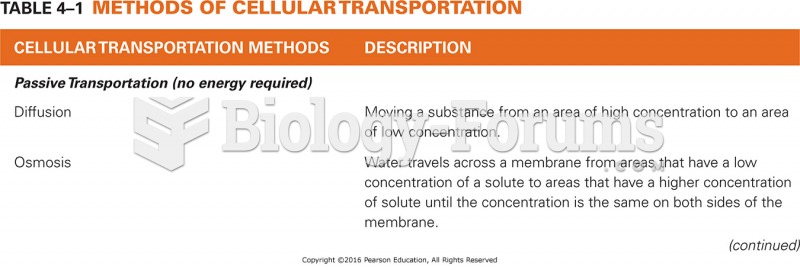This topic contains a solution. Click here to go to the answer
|
|
|
Did you know?
The calories found in one piece of cherry cheesecake could light a 60-watt light bulb for 1.5 hours.
Did you know?
Earwax has antimicrobial properties that reduce the viability of bacteria and fungus in the human ear.
Did you know?
During pregnancy, a woman is more likely to experience bleeding gums and nosebleeds caused by hormonal changes that increase blood flow to the mouth and nose.
Did you know?
The longest a person has survived after a heart transplant is 24 years.
Did you know?
The modern decimal position system was the invention of the Hindus (around 800 AD), involving the placing of numerals to indicate their value (units, tens, hundreds, and so on).
 Abduction and Adduction Abduction–Moving a body part away from the middle. Adduction–Moving a body p
Abduction and Adduction Abduction–Moving a body part away from the middle. Adduction–Moving a body p
 A sidewheeler on the Mississippi. In 1856 Samuel Clemens became an apprentice to a steamboat pilot a
A sidewheeler on the Mississippi. In 1856 Samuel Clemens became an apprentice to a steamboat pilot a
 Immanuel Kant (1724–1804). German philosopher considered by many to be the greatest thinker of the ...
Immanuel Kant (1724–1804). German philosopher considered by many to be the greatest thinker of the ...




